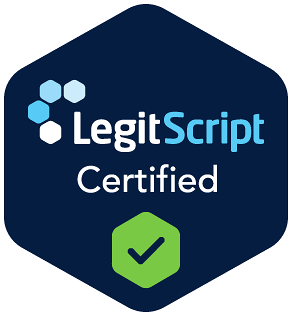Discharge Planning
- Home
- Discharge Planning
Our Dedicated Discharge Planning Team
At Skylight, we’ll work together to create your personalized discharge plan. This crucial step helps you move forward in your healing journey. As we prepare for your discharge, we consider key factors like the right level of care, your ongoing needs, and ways to build on the recovery foundation you’ve established at Skylight Recovery Center. Our goal is to ensure you’re well-equipped for the next phase of your recovery path.
Next Levels of Care After Discharge
Partial Hospitalization Program (PHP)
After the discharge process from residential treatment for addiction or mental health, many people move on to a partial hospitalization program (PHP). In a PHP, you’ll attend regular therapy sessions but have more freedom than in residential care. You can go home each evening or stay in a supervised sober living home. This step-down approach is a common and helpful part of the recovery journey. It allows you to gradually adjust to more independence while still getting the support you need. PHPs offer a balanced transition in your path to healing and wellness.
Intensive Outpatient Program (IOP)
After you complete and discharge from a PHP, an intensive outpatient program is the next step in a holistic healing journey. IOP, or Intensive Outpatient Program, follows PHP in the care continuum. This level of care happens in an outpatient setting, with some therapy-free days. It’s a transition period where support and regular therapy are crucial as you face new challenges with increased independence. The program focuses heavily on preventing relapse and building coping skills for triggering situations. This stage is designed to help you navigate your recovery with confidence, providing the tools and support you need to maintain your progress and build a strong foundation for lasting wellness.
Virtual OP Program
We provide a virtual or telehealth option for ongoing care, enabling a smooth transition to life beyond treatment. Trost Health Outpatient delivers IOP and outpatient (OP) care levels, including group sessions, one-on-one therapy, and medication management oversight. This phase of treatment typically spans 10-12 weeks or more, tailored to each individual’s specific needs. Our compassionate approach ensures personalized support throughout your recovery journey, offering hope and guidance every step of the way.
Establishing a Strong Base for Enduring Recovery
Our care focuses heavily on clinical aspects of addiction and mental health recovery. However, resources like peer support groups have helped many achieve lasting wellness after discharge from treatment. We also offer support for families, recognizing that mental health and substance use issues impact more than just the individual struggling. These comprehensive approaches build a solid foundation for long-term healing and growth.
Co-occurring Disorder or Addiction Support Groups for After Discharge
- Alcoholics Anonymous (AA)
- Narcotics Anonymous (NA)
- Codependents Anonymous (CoDA)
Mental Health Disorder Support Groups
National Alliance of Mental Illness (NAMI)
These are just a few of the most well-known support groups available to you. There are countless options out there, each designed to help individuals like you. If you find yourself struggling to connect with a particular group, please reach out to our dedicated alumni team. They are here to guide you and can help you find the right fit.
Skylight's Alumni
Skylight Recovery Center proudly hosts a vibrant and extensive alumni group that offers a variety of meetings and events, both virtual and in-person. This supportive alumni community serves as a safe space for meaningful recovery discussions and provides a platform to address important mental health concerns. We believe in the power of connection and shared experiences. Our alumni group is completely free of charge and warmly welcomes everyone who has been discharged from our facilities, fostering a sense of belonging and ongoing support in their recovery journey.
Recovery Resources for Family
Recovery from the effects of a loved one dealing with addiction and mental health disorders is crucial not only for the individual but also for the entire family unit. It is essential to recognize that support is available through peer-to-peer support groups designed specifically for those who care for someone struggling. These resources provide a compassionate space for sharing experiences and fostering healing together.
Not only is your loved one part of the Flyland family forever, you are as well. We have a weekly virtual family support group to connect with others in the same situation as you are. Whether your loved one is healthy, thriving, or struggling, you have a group available. We also have our Family Support Facebook Group that you can join to connect with others and build your own support network and have resources ar your fingertips.
Additional Information For After Discharge
During treatment, we focus intently on developing essential life skills. These skills are crucial for your success once you leave our facility and re-enter the world. When you encounter real-life challenges outside of treatment, it can often feel overwhelming and daunting. However, if you ever find yourself in a difficult situation regarding your mental health or feel that you might relapse, remember that our dedicated alumni team is here to support you. You are never alone in facing your struggles again.
It is important to understand that post-acute withdrawal syndrome can last for more than 18 months after you stop using drugs or alcohol. The symptoms associated with PAWS can closely resemble those of depression, which can be confusing and distressing. Be vigilant if you are experiencing mental health challenges or symptoms of PAWS, as these can lead to a relapse in behaviors and actions, potentially hindering your recovery progress. If you find yourself in doubt or feeling overwhelmed, do not hesitate to reach out to your support group or a mental health professional. They can provide the guidance and assistance you need to stay on track with your healing journey. Remember, seeking help is a sign of strength, and you deserve to maintain your path to recovery with the right support.



